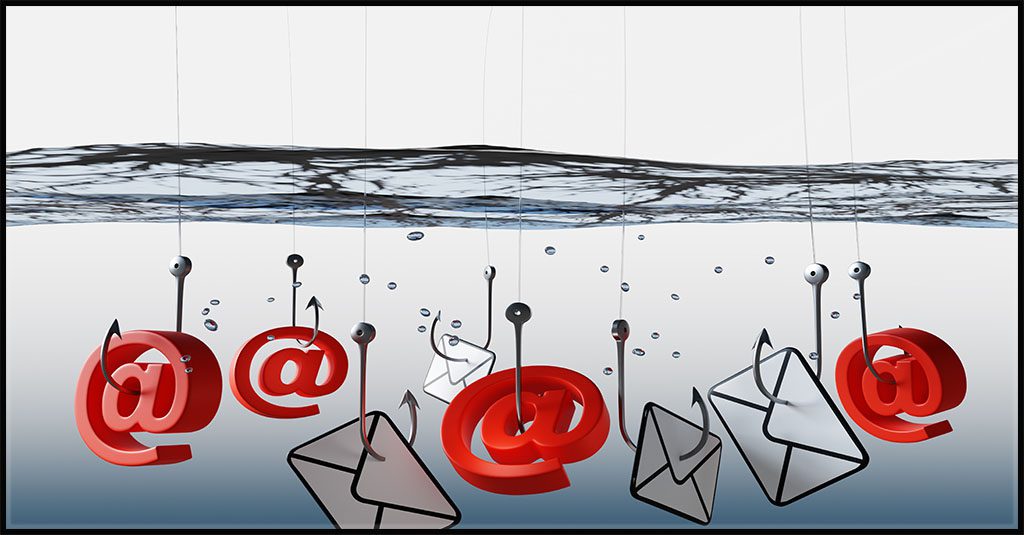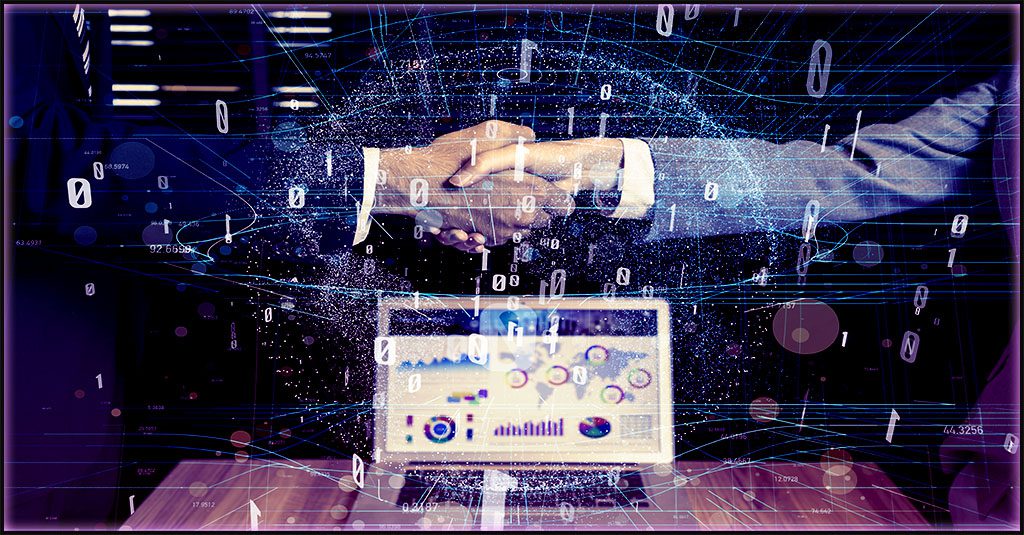Fight Fire with Fire by Choosing AI-Enhanced Email Security

AI-Enhanced Email Security is Ready for Sophisticated Threats
Email remains a critical channel for business operations, serving as the lifeline for internal and external communications. However, this reliance on email also brings the potential for email-based cyberattacks to every company’s doorstep. With the rise of sophisticated techniques like AI phishing and social engineering, traditional email security measures are no longer sufficient. Businesses need to take email security seriously to prevent cyber trouble by taking proactive actions like adopting powerful, AI-enhanced email security solutions. Unfortunately, too many businesses aren’t investing in the kind of email security that can handle today’s threats. Here’s why email security needs to be a priority.

Learn to defend against today’s sophisticated email-based cyberattacks DOWNLOAD EBOOK>>
Email is the most concerning threat vector
In our Kaseya Security Survey 2023, we asked respondents about the vectors through which their organization might suffer a successful cyberattack. One-quarter of our respondents chose email, highlighting the importance of having powerful, layered email security solutions in place to minimize risk. Nearly another one-quarter of survey respondents said that they consider endpoints to be their most vulnerable vector (23%). It is interesting to note that 22% of respondents chose a people-related vector, human error or insider threat, as the most likely conduit for a successful cyberattack against their employer. This result reinforces the importance of security awareness training for every employee. Education and training dramatically reduce a company’s risk of falling prey to a cybersecurity incident.
Which of the following threat vectors are you most concerned about being the gateway to a successful attack in the next 12 months?
| Attack Vector | Response |
| 25% | |
| Human error (social engineering, distraction) | 16% |
| Endpoint (server) | 12% |
| Endpoint (laptop) | 11% |
| Cloud | 10% |
| Network | 8% |
| Insider threats | 6% |
| Supply chain | 5% |
| Unpatched systems (Zero-day attacks) | 5% |
| None | 2% |
Source: Kaseya Security Survey Report 2023

Every business faces insider risk, from employee mistakes to malicious acts. Learn how to mitigate it. DOWNLOAD EBOOK>>
Investment in email security is not keeping pace with risk
However, according to our respondents, businesses aren’t making investments to improve their email security. Cloud security (28%), cyber insurance (27%) and endpoint detection and response (EDR) (26%) are the top three areas in which respondents said they plan to invest in the next year. Surprisingly, only 17% of respondents are planning to invest in security awareness training, a low-cost way to reduce security incidents by up to 70%, and 3% of respondents said their companies will not be making any cybersecurity investments at all.
Which of the following cybersecurity investments do you anticipate making in the next 12 months?
| Investment | Response |
| Cloud security | 28% |
| Cyber insurance | 27% |
| Endpoint detection and response (EDR) | 26% |
| Dark web monitoring | 23% |
| Email/collaboration tool security | 23% |
| Network security | 20% |
| Managed SOC/MDR | 19% |
| Automated pen testing | 18% |
| Security awareness training | 17% |
| Secure remote access (SASE) | 15% |
| Vulnerability assessment | 13% |
| We do not anticipate investing in cybersecurity | 3% |
Source: Kaseya Security Survey Report 2023

Is building an in-house SOC a smart move? Our whitepaper breaks down the costs. READ IT>>
AI is now the cybercriminal’s best friend
Microsoft warned that over the last year, the speed, scale and sophistication of cyberattacks has increased alongside the rapid development and adoption of AI. Cybercriminals are continually evolving their strategies to breach corporate defenses, using advanced technologies to craft highly convincing phishing emails and social engineering schemes. These attacks are not only becoming more frequent but also more sophisticated, leveraging AI to convincingly mimic legitimate communication patterns, making them increasingly difficult to detect. AI phishing, for example, uses machine learning algorithms to generate highly personalized phishing emails, bypassing traditional detection methods. Social engineering attacks, on the other hand, exploit human psychology, tricking employees into divulging sensitive information or granting access to secure systems.
While traditional phishing emails often rely on fraudulent links or deceptive language, a new and more sinister trend is emerging: the use of deepfakes. A deepfake is a false piece of media, typically audio or video, in which bad actors manipulate or replace content to serve their purposes by making it appear as though it is authentic and created by the depicted individual. It’s a powerful social engineering tool. The advent of artificial intelligence (AI), especially generative AI, has helped cybercriminals create highly believable, sophisticated deepfakes that can fool even savvy victims.

What should you be looking for in an EDR solution? This checklist helps you make a smart choice! GET IT>>
The new role of AI in enhancing email security
But AI doesn’t have human weaknesses, so it is immune to social engineering. It’s not going to fall for faked indicators of authenticity or scare tactics, removing human error and cybercriminal trickery from the equation. Every incoming message is compared to the baseline using dozens of points of comparison. AI will spot deviations from a company’s normal communication pattern that people might miss. In response to these evolving threats, AI-enhanced email security emerges as a critical solution. Here’s how AI can fortify a business’s email security posture:
Advanced Detection Capabilities: AI algorithms can analyze email content, including text and attachments, in real time to identify suspicious patterns, anomalies, and indicators of phishing or malicious intent. This goes beyond traditional keyword or signature-based approaches, offering a more dynamic and adaptive defense mechanism.
Behavioral Analysis: By learning the normal communication patterns within an organization, AI can detect deviations that may indicate a social engineering attempt. This includes unusual sender behavior, unexpected email content, or irregular sending times.
Predictive Analytics: AI systems can use historical data to predict and identify potential threats before they reach the user’s inbox. This proactive approach can significantly reduce the risk of successful cyber attacks.
Automated Response: Once a threat is detected, AI-enhanced systems can automatically quarantine suspicious emails, block malicious senders, or prompt users for additional verification. This immediate response limits the potential damage and reduces the burden on IT security teams.

See the keys to selecting a Managed SOC to find the perfect one for your clients & your MSP. GET CHECKLIST>>
The Business Case for AI-Enhanced Email Security
Investing in AI-enhanced email security is not just about mitigating cyber risks; it’s also a smart, strategic business decision. Here are four key benefits:
- Protecting Sensitive Data: By preventing phishing and social engineering attacks, businesses can safeguard their proprietary information, customer data, and intellectual property.
- Maintaining Business Continuity: Cyber attacks can disrupt operations, leading to significant financial losses. AI-enhanced security helps ensure that business activities can proceed without interruption.
- Building Trust: Customers and partners trust businesses with their data. Demonstrating a commitment to advanced security measures can strengthen these relationships and enhance a company’s reputation.
- Compliance and Legal Protection: Many industries are subject to regulations that require the protection of sensitive information. AI-enhanced email security can help businesses meet these compliance requirements, avoiding legal penalties and fines.

Learn about the challenges that MSPs face in 2024 in Datto’s State of the MSP 2024 Report. GET YOUR COPY>>
AI is the future of email security
As cyber threats continue to evolve, so too must our approaches to digital security. AI-enhanced email security represents a cutting-edge solution to a modern problem, offering businesses the tools they need to protect themselves in a landscape where traditional defenses are no longer enough. By leveraging the power of AI, companies can not only defend against the threats of today but also prepare for the challenges of tomorrow. In the digital age, investing in advanced email security is not just a necessity—it’s a strategic imperative.
Graphus is the world’s first AI-driven email security solution that creates a wall between organizations and cyberattacks, mitigating phishing attacks before they reach a network. It automatically monitors communication patterns between people, devices and networks to reveal untrustworthy emails, making it a simple, powerful, and cost-effective automated phishing defense solution for companies of all sizes.
Graphus can:
- Protect businesses from cybercriminals posing as trusted contacts, social engineering, zero-day threats and all kinds of email-based cyber threats
- Seamlessly deploy to Microsoft 365 and Google Workspace via API without big downloads or lengthy installs. For smart, layered email security
- Provide intuitive reporting to help you gain insights into the effectiveness of your security, like your level of risks, most common attack types and more.
Book a demo of Graphus today BOOK IT>>

Read case studies of MSPs and businesses that have conquered challenges using Kaseya’s Security Suite. SEE CASE STUDIES>>

Our Partners typically realize ROI in 30 days or less. Contact us today to learn why 3,850 MSPs in 30+ countries choose to Partner with ID Agent!
Check out an on-demand video demo of BullPhish ID or Dark Web ID WATCH NOW>>
See Graphus in action in an on-demand video demo WATCH NOW>>
Book your demo of Dark Web ID, BullPhish ID, RocketCyber or Graphus now!